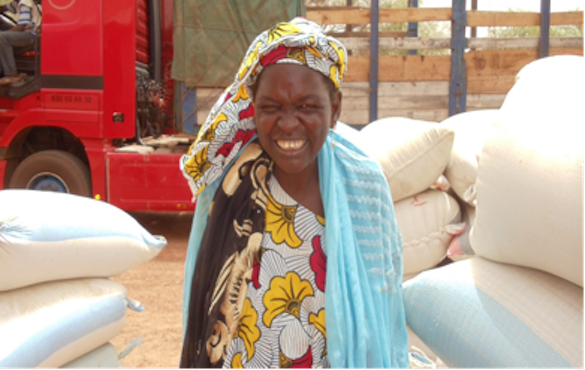Douentza – An elderly and visually impaired woman from Douentza, Dicoré was forced to flee at the height of the 2012 crisis in northern Mali as threats and torture had become part of daily life for the city’s populations. Taking refuge in the city of Diabaly (a town about a hundred kilometers from Segou), Dicoré thought she would be safe. But, just after her arrival, the conflict came to Diabaly.
“When I saw that the situation was worse in Diabaly than in Douentza, I decided to leave the country,” Dicoré said. “This is how I found myself in Burkina Faso without family or any support. I had to beg just to survive.”
Unable to survive like this, Dicoré returned to her native city of Douentza – unsure what to expect.
In Douentza, she found the Restoring the Economic Capacity of Populations Affected by the Crisis in Northern Mali II (RECAPE II) project, financed by United States Agency for International Development/Office for Foreign Disaster Assistance (USAID/OFDA). Implemented by the Near East Foundation, the project responds to the immediate recovery needs of people in northern Mali to restore their livelihoods and food security.
Arriving in Douentza without resources or support, Dicoré was identified as a vulnerable person affected by the crisis and benefited from the support of the project. With this support, she was able to start a small trade activity.
“The food voucher support I received not only allowed me to provide food for my family, but also to revive my economic activities,” Dicoré said. “I was able to invest the little amount I earned–which otherwise would have gone to feeding my family–into my business.”
Today, Dicorè manages a drinking water station and conducts other small trade activities, which allows her to support the food, health, and educational needs of her children.
The RECAPE II project has distributed food vouchers to 2,178 people, distributed fishing equipment, rehabilitated and stocked fish ponds, trained fishers on improved production techniques, distributed cereals (millet and rice) and gardening seeds, and rehabilitated vegetable garden infrastructure.



